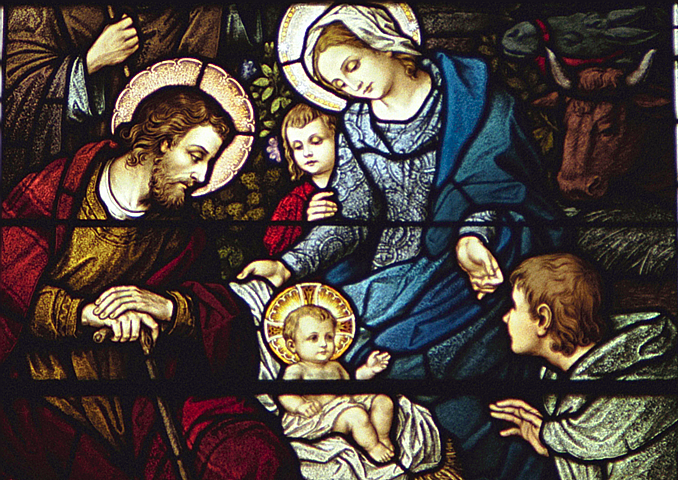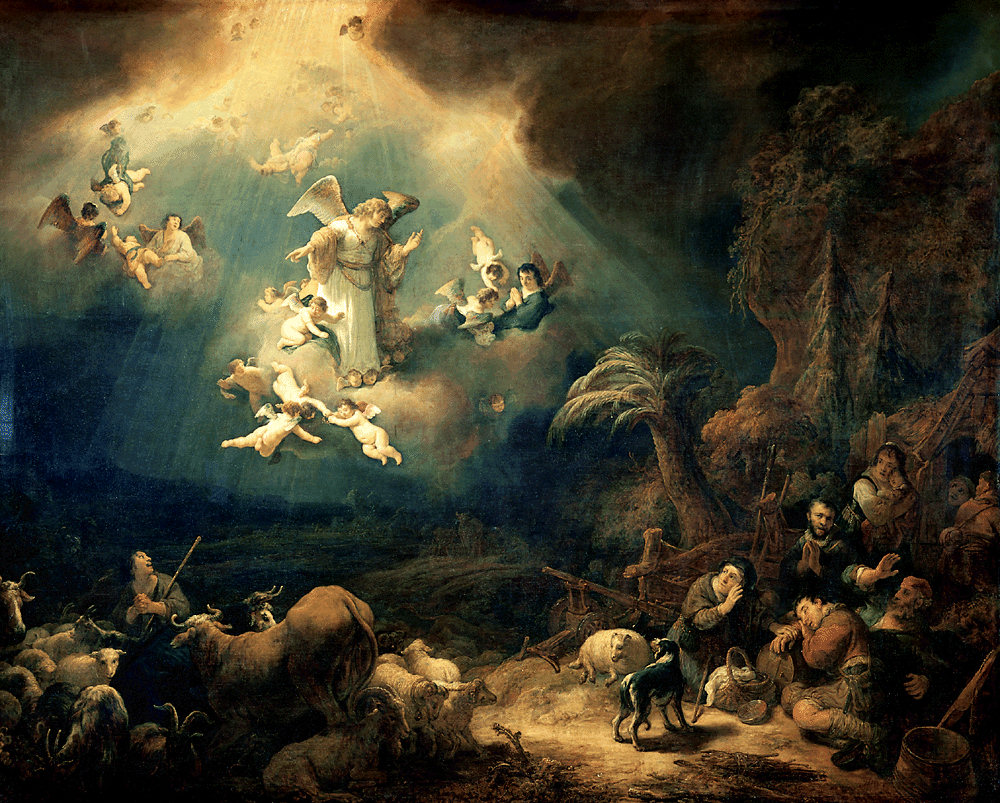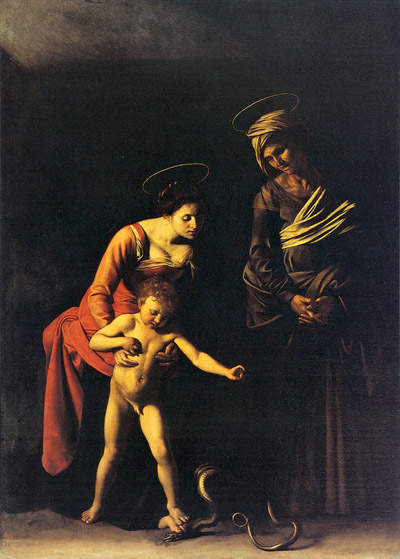[This was shared during worship with the people of Saint Matthew Lutheran Church in Logan, Ohio, on Christmas Eve.]
Luke 2:1-20
On this holy night, I want to ask you to do something really revolutionary. In the racks in front of you, there’s a power plant with more energy in it—and certainly more truth and more life--than can be found in the whole physical universe combined. It’s called the Bible. I ask you to grab a Bible and turn to page 588. Go to Luke, chapter 2, verses 1 to 20. The translators who produced this edition of the Bible have titled the first seven of these verses, “Christ Born of Mary” and verses 8 through 20, “Glory to God in the Highest.” That little block of print is Luke’s entire God-inspired account of the first Christmas.
Isn’t that stunning? In those twenty verses, Luke tells the whole story of Christmas! I think that’s especially striking when you think of all the embellishments we’ve added to the true Christmas story. There are no drummer boys. No midwives. No oxen. No donkeys. And no grandmas run over by a reindeer.
There are a lot of details we might like included that Luke has left out. That could frustrate us. Instead of being frustrated, though, I want to suggest that, as we gather to celebrate the birth of God among us, we look at what the Luke does tell us about the first Christmas. Look again at what Luke writes:
And it came to pass in those days that a decree went out from Caesar Augustus that all the world should be registered. This census first took place while Quirinius was governing Syria. So all went to be registered, everyone to his own city. Joseph also went up from Galilee, out of the city of Nazareth, into Judea, to the city of David, which is called Bethlehem, because he was of the house and lineage of David, to be registered with Mary, his betrothed wife,[a who was with child. So it was, that while they were there, the days were completed for her to be delivered. And she brought forth her firstborn Son, and wrapped Him in swaddling cloths, and laid Him in a manger, because there was no room for them in the inn.Caesar Augustus was the adopted son of Julius Caesar. He had fought a long civil war to take control of Rome and turned it from a republic, in which at least some of its residents voted, to an empire in which he was the undisputed despot. Like many dictators, Augustus strengthened his rule with propaganda that touted his greatness. He declared his adopted father a god, which, of course, made Augustus, in his telling, the son of a god. He also claimed to have brought eternal peace to the earth. He commissioned elaborate tales about his birth, including signs and wonders pointing to his greatness.
When this undisputed ruler of an enormous empire ordered a census, his kingdom hopped-to. In Judea, the land into which Jesus was to be born, thousands of people were forced to return to their ancestral homes in order to be counted.
All this movement of people at the command of one man might very well make you think that that one man, Augustus, was extremely important and powerful. But what Luke wants you to see in the story of the first Christmas is a clash of kingdoms. There is the visible kingdom of Augustus with his armies, his navies, his power to tax, his power to push people around like so many pieces on a Checker board. Power like that today is wielded, you and I can see, not just by governments, but by media conglomerates, corporations, cartels, the inheritors of wealth, superstar celebrities, and others.
But Luke wants us to understand that there is another, more powerful, kingdom at play in our world. It’s the invisible kingdom of God. Unlike the birth mythologies associated with the Roman emperor Augustus, when the kingdom of God entered our world, it was known only by a simple virgin girl, her carpenter husband, angels sent from heaven, and a few shepherds. Everybody else missed out!
Through Luke’s simple narrative, God wants you to see that while God is the indisputable Creator and King of the universe, He doesn’t use the usual tools of the powerful to leverage your allegiance to Him, your belief in Him. God doesn’t push you into welcoming Him into your life.
Instead, God gently woos those who are willing to lay down their trust in the visible things of this world, even in things like their own abilities, and instead, embrace faith in the one and only way to peace, joy, and life with God: Jesus Christ! The Christmas hymn has it exactly right when it says, “How silently, how silently, the wondrous gift is giv’n.”
And the almost laugh-at-loud funny part of all this is that while Augustus ordered the census that put Mary and Joseph in Bethlehem in time for Jesus’ birth, it was God so silently, so silently, orchestrating events to cause Augustus to give those orders. It had to be that the Son of God would also be an earthly descendant of David, born in David’s home city of Bethlehem. It’s like I always tell my Catechism students, “Either God gets His way or God gets His way.”
There is something to be learned from this by all of us tonight. If you look only at the visible things of this life—the kingdoms of this world—things like salaries and pensions, guns, tanks, and armies, hobbies and friendships, good health and success—to give you the peace announced to the shepherds by the angels, you will miss God and His kingdom. You’ll miss Jesus. Many of the thing visible things we see each day have their places. God made many of them and, as the old saying reminded us, God doesn’t make junk. (And that includes you!) But none of the things you and I can see, not even the beautiful things we may see in this sanctuary tonight, can bring us the life, peace, and hope that only Jesus brings to those who dare to pay heed to Him, who dare to follow Him!
Luke tells us that on the night of Jesus’ birth, the only people willing to trust in Christ were some shepherds and two young people from a tiny town called Nazareth. To them, God’s kingdom and God’s Son were real. It’s to people like them—people willing to see and welcome Jesus—that faith still comes.
In his book, Finding God in Unexpected Places, journalist Philip Yancey, tells the true story of an incident that happened at the inner-city Chicago church to which he, his wife, and several other well-off suburban professionals belonged. The church’s pastor had left, attendance was down, and a community outreach program was in jeopardy. The lay leaders suggested an all-night prayer vigil.
There were questions, though. Would an all-night prayer vigil in one of Chicago’s roughest neighborhoods be safe? Would they have to hire armed escorts? And what would happen if nobody turned out? There were questions about just how practical a prayer vigil was in the face of a multiple real-life crises.
But the night of prayer was scheduled anyway. Yancey says that it was the poorest members of the congregation, senior citizens who lived in a housing project, who were most enthusiastic about the prayer vigil. “I could not help wondering,” Yancey writes, “how many of their prayers had gone unanswered over the years—they lived in the projects, after all, amid crime, poverty, and suffering—yet still they showed a childlike trust” in what God would do through their praying.
Along with other congregational leaders, Yancey asked these people how long they wanted to stay for the vigil, an hour or two, maybe? “Oh, we’ll stay all night,” they said. “One black woman in her nineties, who walk[ed] with a cane and [could] barely see,” Yancey says, “explained to a staff member why she wanted to spend the night sitting on the hard pews of a church in an unsafe neighborhood. ‘You see [she told them], there’s lots of things we can’t do in this church. We ain’t so educated, and we ain’t got as much energy as some of you younger folks. But we can pray. We got time, and we got faith. Some of us don’t sleep much anyway. We can pray all night if needs be.”
“And so they did,” Yancey concludes. “Meanwhile a bunch of [well-off professional people] learned anew a lesson of faith from the Gospels: Faith appears where least expected and falters where it should be thriving.”
As we celebrate the birth of Jesus this year, I pray that you are ready to see Jesus and His kingdom in a world that fools itself into believing in only what it can see, control, or manipulate. May your faith be strong! May you look at Christmas without the embellishments the world tries to add to it, instead simply seeing Jesus, the true Son of God and King of kings, and through Him, be filled with His peace.
Merry Christmas, everybody! God bless you!



